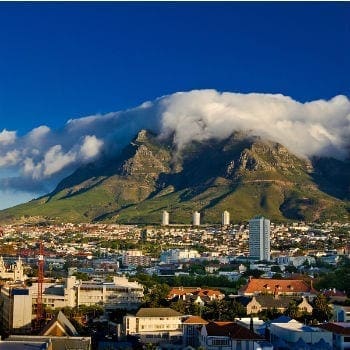 We’re all aware of the primary functions of hotels: business and leisure accommodation and, depending on the property, meetings and conferences. Lately, though, hotels have adopted a fresh approach to the ways in which they merge seamlessly with their neighbourhoods, by making themselves hosts to local events and experiences. In this way, they’re expanding their offering and developing a popular following with locals looking for something interesting to do. There are a few reasons why hotels are becoming the in-place to see and be seen.
We’re all aware of the primary functions of hotels: business and leisure accommodation and, depending on the property, meetings and conferences. Lately, though, hotels have adopted a fresh approach to the ways in which they merge seamlessly with their neighbourhoods, by making themselves hosts to local events and experiences. In this way, they’re expanding their offering and developing a popular following with locals looking for something interesting to do. There are a few reasons why hotels are becoming the in-place to see and be seen.
Ready-made spaces for entertaining
Your typical hotel has a variety of spaces which can easily be adapted to accommodate different kinds of functions and events; these spaces are seldom all booked out at the same time, so it makes sense to consider using them. Moreover, in order to remain on top in a highly competitive industry, hotels are constantly evolving theses spaces to ensure that they’re welcoming, sophisticated and stylish. Everything from window treatments and wall décor to pool areas is under scrutiny, ensuring that a classy event can be staged.
Tapping into experiences
For hotels in urban areas, location is critical to their success, since they must be accessible and be in close proximity to transport, as well as local attractions and experiences. The latter is important; travellers are shifting to the trend of experiential travel that’s immersive and intimate, providing depth to a stay. This has led to the travel-like-a-local trend, where visitors want to experience the local flavours, sights and sounds in the way people living in a destination do. When hotels showcase local performing artists or stage special menu events, they’re catering to their guests as well as locals.
There are too few venues where musicians, for example, can perform – they have to market themselves to venue owners in order to get bookings, and yet some of those venues are inadequate, making the musicians perform in poor conditions to audiences who make too much noise or interfere with the performance in other ways.
As a performer, you can pitch yourself to a local hotel without having to compete with everyone else. A hotel venue offers a welcome alternative to a noisy pub or a dingy nightclub. Of course, the genre of music determines whether or not it will work in a hotel venue, as well as the proximity to where guests are staying and the time of day the event takes place. You’re hardly likely to launch a punk album in the lobby of your local hotel, but you could experience some remarkable jazz, chilled DJ beats or acoustic sets from skilled musicians.
It’s not just about music, either; magicians, comedians and other artists have a hyper-local following of fans, so bringing them into the hotel to perform means their fans will join in, especially if you create a themed event around a particular day such as Valentine’s Day, Mother’s Day, and so on.
The more hotels are doing these kinds of events, the more opportunities they are finding to showcase their food and beverage offerings. This is resulting in locals popping around for an after-work drink or a cocktail on weekends; the more popular this becomes, the more in demand your venue is as a social space. Just take a look at some influential Instagram accounts focusing on events, you’re bound to come across hotels hitting the #event scene.
There’s no formula to it, but hotels can work in tandem with event organisers and performers to ensure that what’s created is sophisticated and in line with their brand, providing a welcome addition to the city’s urban entertainment calendar.
Avukile Mabombo is Group Marketing Manager, Protea Hotels by Marriott.
















